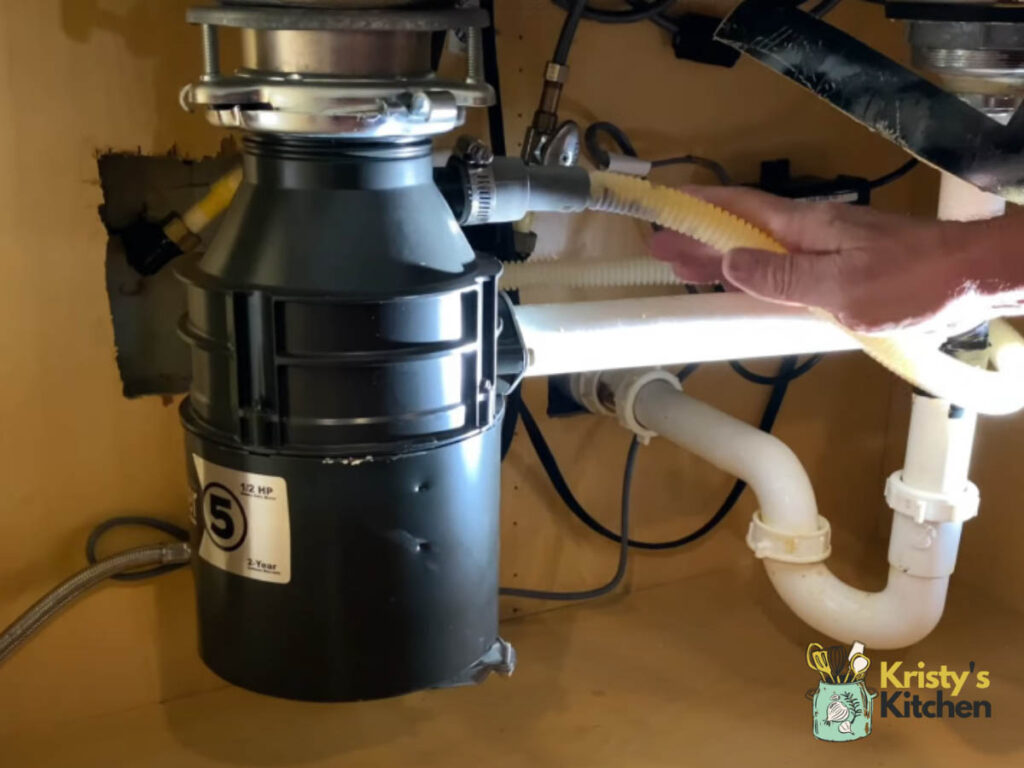Do You Need A Garbage Disposal To Have A Dishwasher?
Imagine a kitchen where cleanup is a breeze and clogs are a thing of the past – that’s the magic of having both a garbage disposal and a dishwasher working together.
You don’t need both – there are alternatives. However, combining both can go a long way toward keeping messes away from your kitchen. I’ll tell you why in this post.
Do You Need A Garbage Disposal To Have A Dishwasher?

Having a garbage disposal isn’t a strict necessity for having a dishwasher, but it can certainly add a layer of convenience to your kitchen setup.
Let’s explore how these two appliances team up to make your life easier when it comes to handling kitchen waste.
A garbage disposal takes on the role of a helpful assistant for your dishwasher.
It grinds down leftover food into smaller bits, which can prevent potential clogs in your plumbing system.
This is especially handy for larger food scraps that could otherwise cause drainage problems.
However, not having garbage disposal doesn’t mean you’re out of options. There are other ways to ensure smooth drainage and prevent blockages.
Even if you don’t have a garbage disposal, don’t worry. You can create a high loop in the dishwasher’s drain hose or install an air gap to achieve similar results.
These methods prevent any backflow and keep the drainage system clear, preventing potential problems like a dishwasher not draining as it should.
How to Install a Dishwasher Without Garbage Disposal
Putting in a dishwasher without a garbage disposal is doable and straightforward. You can do it in just 6 easy steps:
- Preparation: Turn off the water supply, disconnect the power.
- Drainage: Loop the drain hose higher under the sink – this ensures smooth water flow and avoids complications.
- Connection: Connect the water line, aligning it with the sink drain.
- Mounting: Slide the dishwasher into place, keeping it level.
- Electrical: Hook it up to power – let there be light.
- Testing: Run a test cycle and keep an eye out for any signs of a dishwasher not draining situation.
If things seem off, inspect the drain loop and p-trap for any potential blockages.
FAQs
Can a dishwasher drain directly into the waste line?
Absolutely, but adding precautions like a high loop or an air gap helps prevent drainage issues. It’s all about maintaining kitchen harmony.
Do dishwashers grind up food?
It varies. Without a garbage disposal, dishwashers rely on filters. These filters act like sidekicks – they catch food particles, allowing you to clean them up after a cycle.
Does dishwasher water go to the sewer?
Yes, it joins the wastewater flow. A proper setup, featuring a high loop or an air gap ensures a smooth and hygienic process.
Do Bosch dishwashers have garbage disposals?
Most Bosch dishwashers skip the garbage disposal. They depend on filters and drain loops to handle kitchen waste, offering a unique approach to the task.
Final Thoughts
Although not the star player, garbage disposal makes a meaningful contribution to your dishwasher’s performance.
It enhances efficiency and preemptively addresses issues like a dishwasher not draining.
Understanding how these components interact gives you a smoother and more convenient kitchen experience.
And remember, take advantage of high loops and air gaps to ensure everything flows smoothly.
